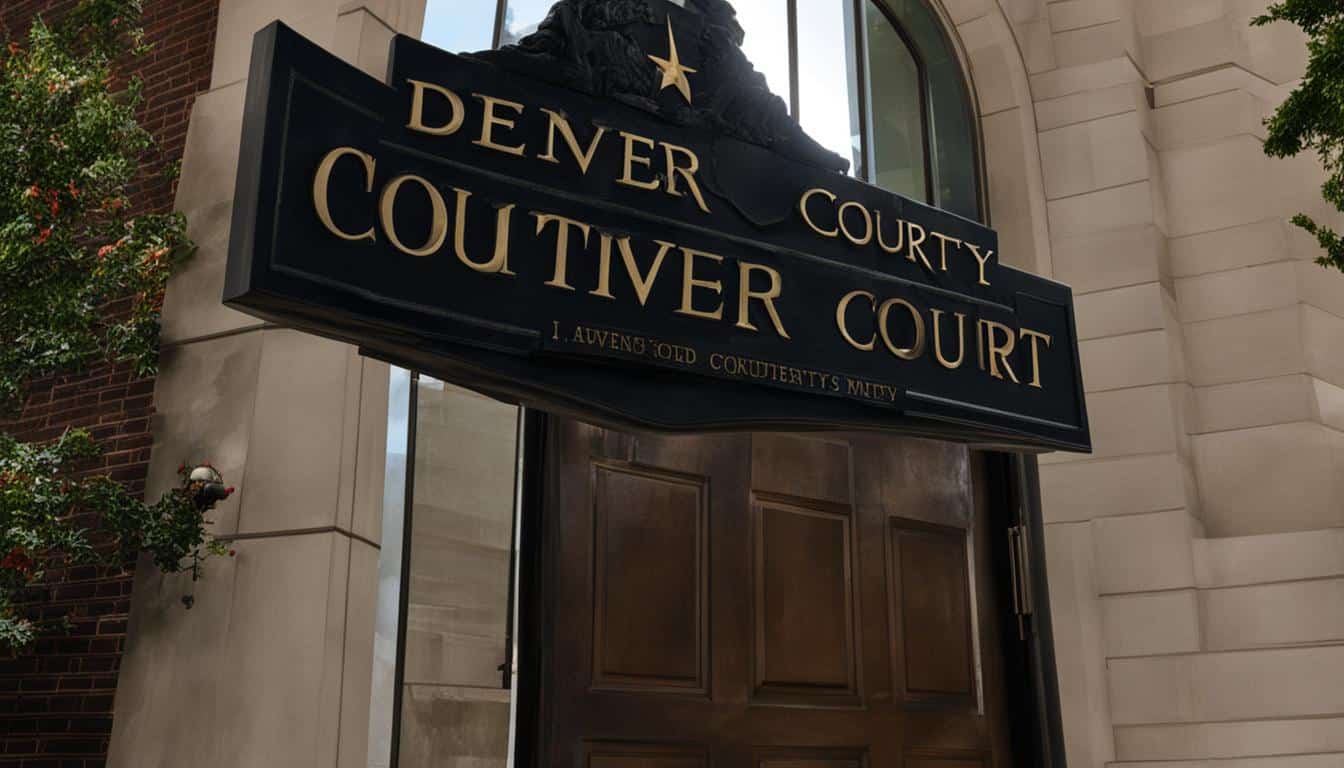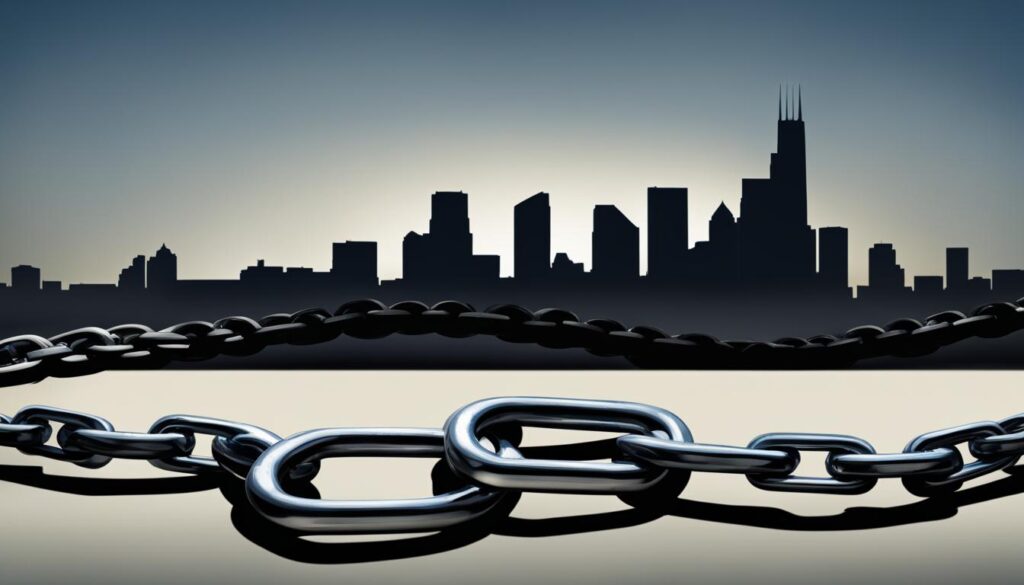Physical Address
304 North Cardinal St.
Dorchester Center, MA 02124
Physical Address
304 North Cardinal St.
Dorchester Center, MA 02124

Filing for divorce in Denver County, CO, might seem like trekking a mountain. But what if you had a map to guide you through? Imagine navigating the legal landscape with ease, knowing each step to take. Denver’s unique laws make it a journey all its own.
This guide is your first step. Whether it’s understanding where to file or what documents you need, we’ve got you covered.

Let’s dive into the heart of Denver’s divorce process, breaking down the complex into simple. Ready to take the first step? Keep reading to find your path through this challenging time, turning the daunting into doable.
To get more info on filing for divorce in Colorado, find a detailed overview in our article, How to File for Divorce in Colorado.
Before beginning the divorce process in Denver County, it is important to understand the eligibility requirements. To file for divorce, at least one spouse must be a resident of the county for a minimum of 91 days. This residency requirement ensures that the divorce proceedings take place in the appropriate jurisdiction.
If the divorce involves children, an additional residency requirement applies. The children must have lived in Colorado for at least 182 consecutive days prior to filing for divorce. This requirement ensures that any child custody and support arrangements are made within the state that has jurisdiction over the children’s well-being.
Meeting these residency requirements is crucial in order to proceed with filing for divorce in Denver County, CO. By fulfilling these criteria, you can ensure that your divorce case will be appropriately managed within the county court system.
Whether you are the resident filing for divorce or the non-resident spouse, understanding and meeting the residency requirements is an essential step in the Denver County divorce process.
In order to file for divorce in Denver County, CO, at least one spouse must meet the following residency requirements:
By meeting these requirements, you ensure that your divorce case is filed and processed in the appropriate jurisdiction. Understanding and fulfilling these residency requirements is essential to a smooth and successful divorce filing process in Denver County, CO.
In Denver County, CO, spouses can obtain a divorce based on the grounds of irretrievably broken marriage. This means that there is no chance of reconciliation between the parties, and the marriage cannot be saved. Unlike fault-based divorce systems, where one spouse must prove wrongdoing or assign blame, Denver County follows a no-fault divorce system. In a no-fault divorce, neither spouse needs to prove fault or misconduct. Instead, the focus is on the fact that the marriage is irretrievably broken.
Under the no-fault divorce system in Denver County, CO, couples can dissolve their marriage without engaging in lengthy and contentious battles over who is at fault. This approach simplifies the divorce process, reduces conflict, and allows spouses to focus on the practical matters of dividing assets, determining child custody arrangements, and establishing support obligations.
By embracing the no-fault divorce concept, Denver County recognizes that irretrievable breakdowns in marriages can happen due to a variety of reasons, and it is more beneficial for both parties to focus on moving forward instead of dwelling on past wrongs. This approach promotes a more amicable and cooperative divorce process, which can be especially beneficial when children are involved.
If you are considering filing for divorce in Denver County, CO, knowing that a no-fault divorce system is in place can help you understand the expectations and navigate the process with greater ease. Whether you choose to hire a divorce attorney or pursue a DIY divorce, understanding the grounds for divorce can ensure that you approach the process in the most efficient and effective manner possible.
For a visual representation of the no-fault divorce process in Denver County, CO, refer to the table below:
| Grounds for Divorce | No-Fault Divorce |
|---|---|
| Description | A marriage is irretrievably broken, with no chance of reconciliation. |
| Proof of Fault Required | No |
| Focus of Divorce Proceedings | End of the marriage rather than assigning blame |
| Benefits | Reduced conflict, simplified divorce process |

Filing for divorce in Denver County, CO involves several essential steps that you need to follow to ensure a smooth and successful process. Here are the steps you should take:
Following these steps will help you navigate the divorce process in Denver County, CO and ensure that all necessary documentation is filed correctly. Remember, seeking professional guidance from a divorce attorney is highly recommended to protect your rights and interests throughout the divorce proceedings.
When filing for divorce in Denver County, CO, there are specific filing fees that must be paid. The filing fee for a Petition for Dissolution of Marriage or Legal Separation is $230, and an additional $116 is required for filing the response to the petition. There may also be additional fees for serving the divorce papers. It is important to be aware of these fees and budget accordingly.
| Service Description | Fee |
|---|---|
| Petition for Dissolution of Marriage (Divorce) | $230.00 |
| Petition for Legal Separation | $230.00 |
| Response | $116.00 |
| Registration of a Foreign Decree/Judgment | $201.00 |
| Motion to modify, amend or alter decree or order (more than 60 days after decree entered) | $105.00 |
If your financial circumstances prohibit you from paying these filing fees, you may be eligible for a fee waiver. By requesting a fee waiver, you can petition the court to waive your filing fees. This suggests that you won’t have to pay for them and can proceed with your divorce case debt-free.
If you cannot afford to pay the filing costs for your divorce in Denver County, CO, there may be options available for a fee waiver. Denver County offers a fee waiver program for individuals who can demonstrate financial hardship. By applying for a fee waiver, you may be eligible to have some or all of the filing fees waived, making the divorce process more accessible.
The court is located at:
520 W Colfax Ave, Denver, CO 80204, United States
While it is recommended to consult with a divorce attorney, it is possible to file for divorce without an attorney in Denver County, CO. This section will provide guidance on the process of filing for divorce pro se, including understanding the necessary forms, filling them out correctly, serving the divorce papers, and representing yourself in court if necessary. It is important to understand the responsibilities and challenges of self-representation before choosing to file without an attorney.
Filing for divorce without an attorney, also known as a DIY divorce, can save you money on legal fees. However, it requires careful attention to detail and thorough understanding of the divorce process. To start, you will need to obtain the necessary forms. Denver County provides these forms online, and you can also obtain them from the courthouse. Make sure to choose the correct forms for your situation, such as a Petition for Dissolution of Marriage or Legal Separation.
Once you have the forms, fill them out accurately and honestly. Pay close attention to any specific instructions or requirements outlined in the form. Make sure to include all necessary information and double-check for any errors. It is crucial to provide complete and truthful information, as any inconsistencies or inaccuracies can lead to complications or delays in the process.
After completing the forms, you will need to serve the divorce papers to your spouse. Serving the papers means delivering them in a legally acceptable way, ensuring that your spouse receives proper notice of the divorce. There are different methods of service, such as personal service or certified mail. Research the rules and regulations for serving divorce papers in Denver County to ensure that you comply with the correct procedures.
To see how this process of filing for divorce in Arapahoe County compares to that in other California counties, check out our articles about how to file for divorce in Adams County and filing for divorce in Denver County.